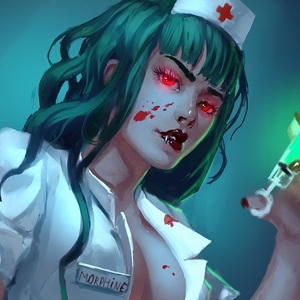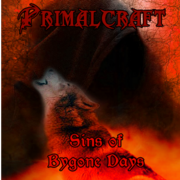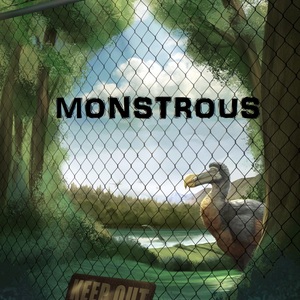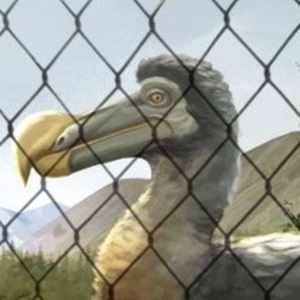It wasn’t the moa; they were huddled together under the tree they were tethered to.
I wandered into the bush—and woke early the next morning sprawled on the moss with a killer headache. What had happened? My bag was missing and the tuatara were gone!
I jumped to the obvious conclusion, and ran over to where the locals were sleeping. “Thieves. How dare you!”
They put on a good show of innocence—eyes boggling and acting all surprised and outraged that I had taken tuatara in the first place.
“Don’t touch them again,” they warned.
“Why are these people even here?” I demanded of Arthur. When Arthur didn’t reply, I stomped off.
After that, nobody could sleep, so we decided to use the pre-dawn hour productively.
“I don’t like using the moa chick as bait,” Jean said. “What if something goes wrong?”
“We could come back later with a replica,” Pat said.
I shook my head. “Won’t be the same. We don’t know what the predator is attracted to. It might be sound or smell, not a visual stimulus at all. Besides, I’m not sure it would even be here if we came back. With so many moa gone, the Pouakai must be desperate to find food. Why else would it attack humans?”
We found the perfect clearing near where the Pouakai had dropped from the sky: a narrow gap in the tangle of trees and vines where a large lancewood had fallen.
We strung a net above the moa, where we hoped the leaves of two whiteywood trees would obscure it from the Pouakai.
Dawn arrived, its orange glow barely penetrating the forest. Above, a shadow circled. Then, as the first sun filtered through the leaves, the eagle dived toward the young moa.
The chick squealed and tried to seek shelter under its mother.
The mother struggled against its harness, and bellowed at the predator as the eagle, claws out, caught its foot in the net and shrieked—its cry echoing across the valley.
Loud footsteps echoed.
A monster?
No, the ground was shaking too hard—it must be tiny earth quakes, or some other natural phenomenon— I didn’t have time to think what, because the eagle was shredding the net to get away.
I tried to cover its eyes with my jacket, and missed.
It didn’t miss me. Its foot gashed my shoulder, then it lunged at Jean and Arthur, who were using their oversized butterfly nets to little avail.
“Quickly!” I threw Pat a blanket. “Get this over its eyes.”
He threw it.
Right then, half a dozen sailors arrived with the cage. They rushed to help. With sheer force of numbers—and another couple of blankets, we managed to bundle the enormous bird into the too-small cage.
While the old geezer was arguing with Arthur, I sneaked off and grabbed two tuatara from the rock, hopefully for the last time. They puffed smoke in my face just as I slipped them into the bag. I got back just in time to join the last of the celebrations. Pat was showing everyone a fanciful drawing of a giant reptile.
It was only then that I remembered that last night, in the bush, I thought I’d seen a giant reptilian head, breathing smoke before I was knocked unconscious.
That noise came again. The same noise as the night before.
Thud… Thud… Thud... Giant footsteps rattled the very ground we stood on. Could it really be a taniwha?
“Run!” the old geezer screamed.
The call was echoed by Arthur and Jean.
“Hold on tight to that cage!” Arthur called to the sailors. “Don’t you dare let it go. It’s worth a thousand pounds, for sure.”
Behind us, trees splintered.
In front, hanging onto baby moa’s harness, Jean was being dragged through the entrance of the hidden valley.
“Don’t look back,” the old man yelled.
Even so, Arthur and I took a moment to rescue the large moa. We then had to wait as Pat and the sailors crammed the cage through the doorway. It was just enough time to wrap the lead securely around my wrist, but it felt like forever.
When I thought we were safely on the other side, a giant reptile smashed through the wall.
Its tongue flicked out.
I could feel its breath on my back. Smoke billowed with the strangely-familiar scent of earthy nutmeg.
The next thing I remembered, I was being pulled along by a frightened moa, ahead of a nightmare monster. The sailors had fallen behind, struggling to carry the cage.
Jean and Arthur called at me to hurry. They were already loading the baby moa onto a skiff. With a little help from Pat, I disentangled the moa’s lead from my aching wrist and shoved the creature on board.
In our rush to get the craft into the water, the birds panicked, flipped the boat, and dragged free.
“Keep moving!” the old geezer yelled, stopping the Conan Doyles from chasing the moa.
Together, we scrabbled to right the craft.
Where were his boys?
I glanced back. There they were, pulling the sailors away from the eagle’s now shattered cage.
“You did that on purpose,” one of the sailors yelled. He was enveloped in mist, scooped up and eaten by the biggest cryptid I’d seen in my life—a reptile the size of a castle.
Overhead, a shadow wheeled, the giant eagle, flying back to its home in the forest.
“This is your fault. You should never have stolen the taniwha’s young,” the geezer shouted.
“What young?” I said, annoyed. We’d lost everything. The birds. Hawker. Even half the sailors hadn’t made it back—and he was trying to blame me.
Later that day, Pat and I thumbed through his pictures. His depictions of smoke-breathing lizards reminded me of something…
The little tuatara were still in the bag.











Comments (0)
See all